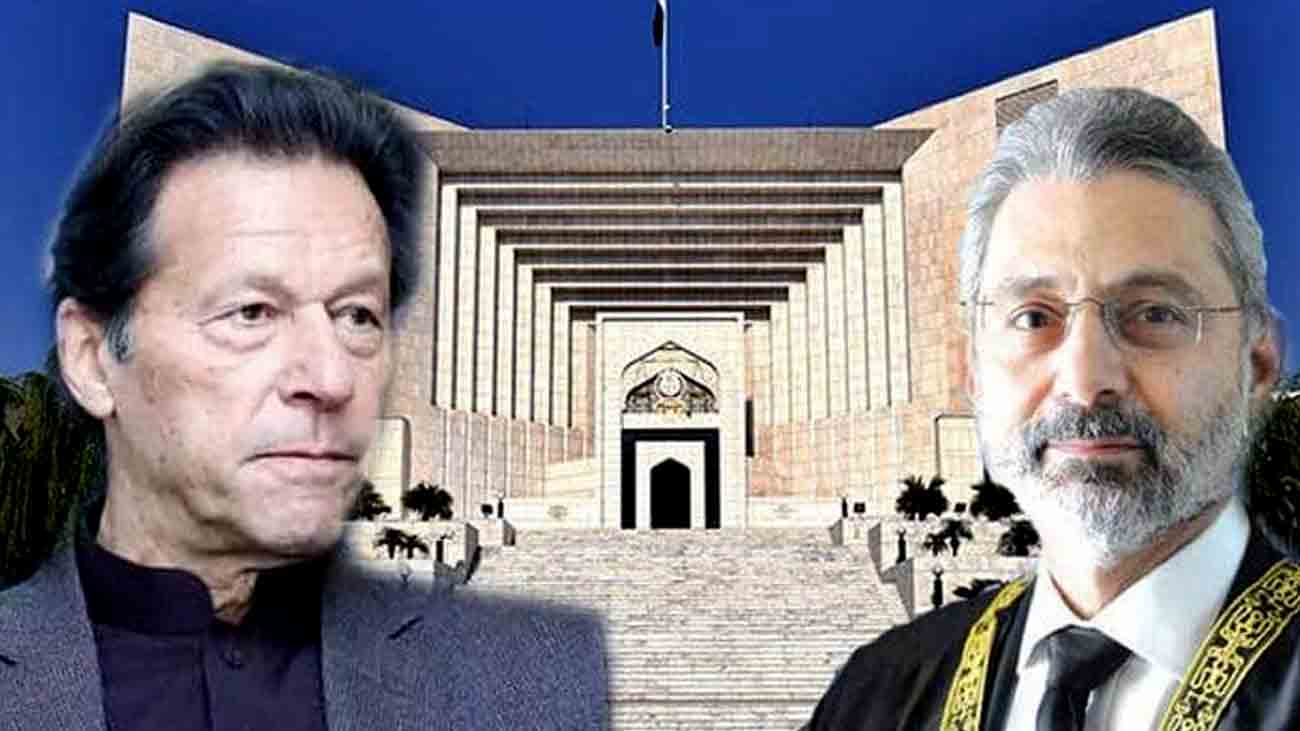
In his reply in a case relating to amendments made to the accountability laws, the PTI founder said that the move would uphold the principle of impartiality. He filed the case in 2022 alleging that the amendments were made to legitimize corruption and benefit influential accused persons.
In his written reply, Imran cited the top court’s judgment in a 2021 case in which the court had remarked that Justice Isa, then a Supreme Court judge and current chief justice of Pakistan, should not hear cases against Khan to maintain impartiality. The reasoning cited by the court was that Justice Isa had filed a petition, in a personal capacity, against Khan in the same case.
Also read: FIA moves SC against acquittal of Imran, Qureshi in cipher case
The reply says, “In the said judgment it is observed that in order to uphold the principle of unbias-ness and impartiality it would be in the interest of justice that Justice Qazi Faez Isa (as he then was, now Chief Justice) should not hear matters involving me.”
Imran Khan submitted the written reply to the apex court against the intra-court appeal seeking nullification of the NAB amendments.
He stated that amending laws to save someone’s corruption doesn’t even happen in a banana republic, as corruption is destructive and has negative effects on the economy.
Also read: Imran Khan appears before apex court via video link in NAB amendments case
He said that the accountability watchdog had exaggerated the value of a necklace to Rs318 million to build a case against him, while its actual worth was Rs18 million.
Imran remarked that past corrupt individuals have used laws and Parliament as their shield, and the amendments made to protect corruption erode public trust in the judicial system and the law.
He said that the purpose of laws should aim at the public interest and welfare, not for any single individual. He urged the Supreme Court not to turn a blind eye to the facts.




